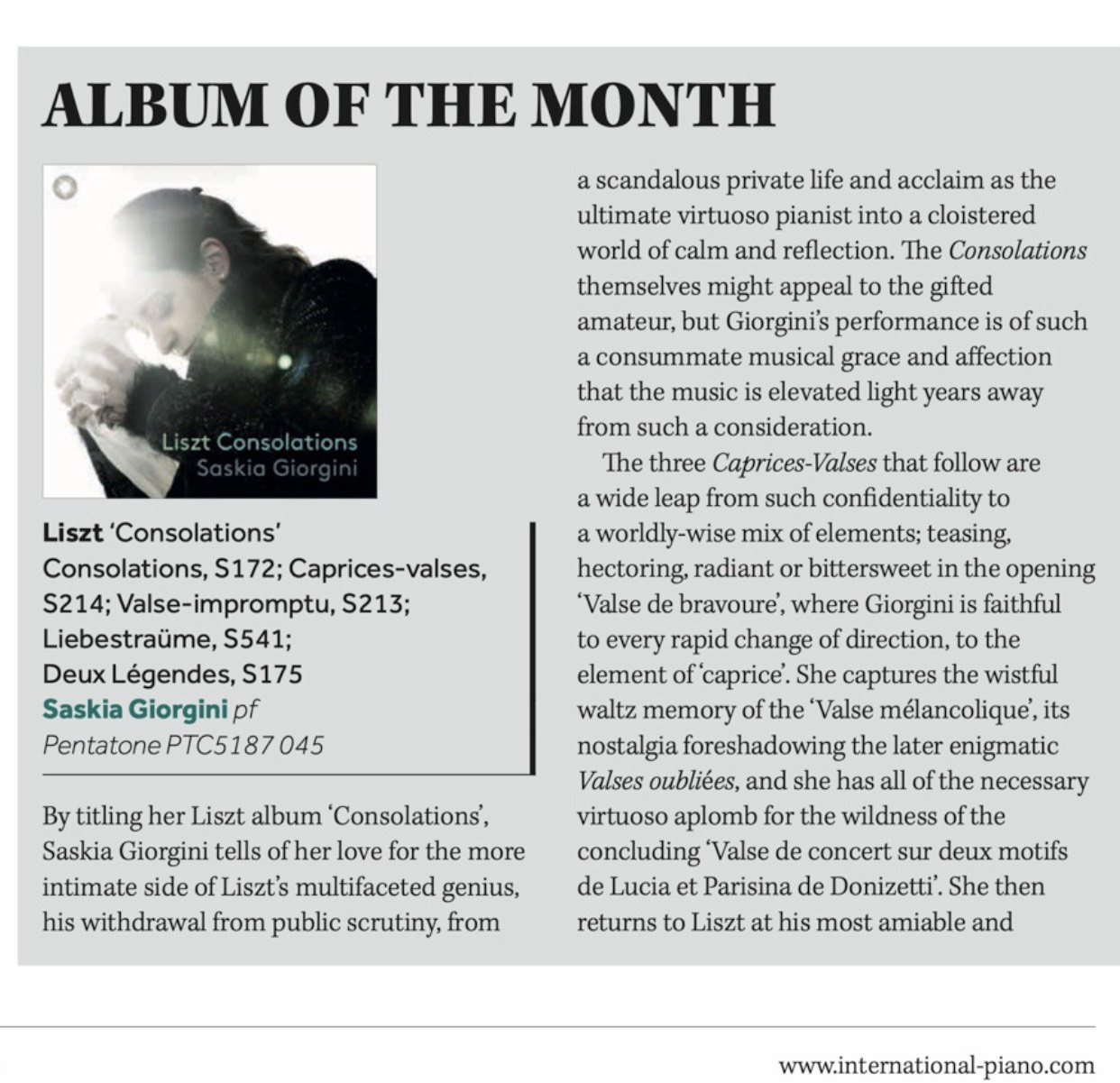Liszt: Consolations
The "Consolations" themselves might appeal for the gifted amateur, but Giorgini's performance is of such consummate musical grace and affection that the music is light years away from such consideration
The "Consolations" themselves might appeal for the gifted amateur, but Giorgini's performance is of such consummate musical grace and affection that the music is light years away from such consideration
Almost a year and a half ago Saskia Giorgini won a Diapason d'or for her sumptuous Harmonies poétiques et religieuses by Liszt. Still playing on a magnificent Bösendorfer, the Italian-Dutch pianist once again captivates with a constantly inspired approach and an unflagging fervour, all the more so in intimate pieces such as the Six consolations, rendered with disarming simplicity. Under his silky fingers, these little chorales (I,IV,VI) with their almost childlike tenderness are reminiscent of certain pared-down pages by Schumann or Mendelssohn.
This ethereal touch enables her to sing the two nocturnes Consolation nr. 3 - a sort of Chopinian offshoot - and the famous Rêve d'amour nr. 3 with an almost hypnotic gentleness that is rarely heard.
An excellent accompanist (for Ian Bostridge, among others), Giorgini never forgets that Liszt composed these Liebesträume simultaneously for voice and piano: "I had died of the voluptuousness of love; I lay buried in her arms; I was awakened by her kisses; I saw Heaven in her eyes", says the poem (no. 2), a spiritual vision of love that the musician delivers perfectly.
This voluptuous lyricism is found in the rare Caprices-Valses and the versatile Valse-Impromptu.
There is no ostentatious virtuosity here, but unparalleled finesse and elegance.
The same natural eloquence is to be found in the two Légendes. The Preaching to the Birds by Saint Francis of Assisi conveys with emotion all the humility of this poetic score. The two Légendes proceed from the same natural eloquence. The Preaching to the Birds by Saint Francis of Assisi emotionally captures all the humility of this prophetic score, in which the moving song is shrouded in trills that Saint Francis of Paola, walking on the waves, advances weightlessly, inexorably, until the final exaltation. Nobility incarnate. After the ascetic Ciccolini for the Consolations and Liebesträume, and the radiant Kempff for the Légendes, Saskia Giorgini offers us the great modern version of these three collections by Liszt. (Jean-Yves Clément- Diapason)
